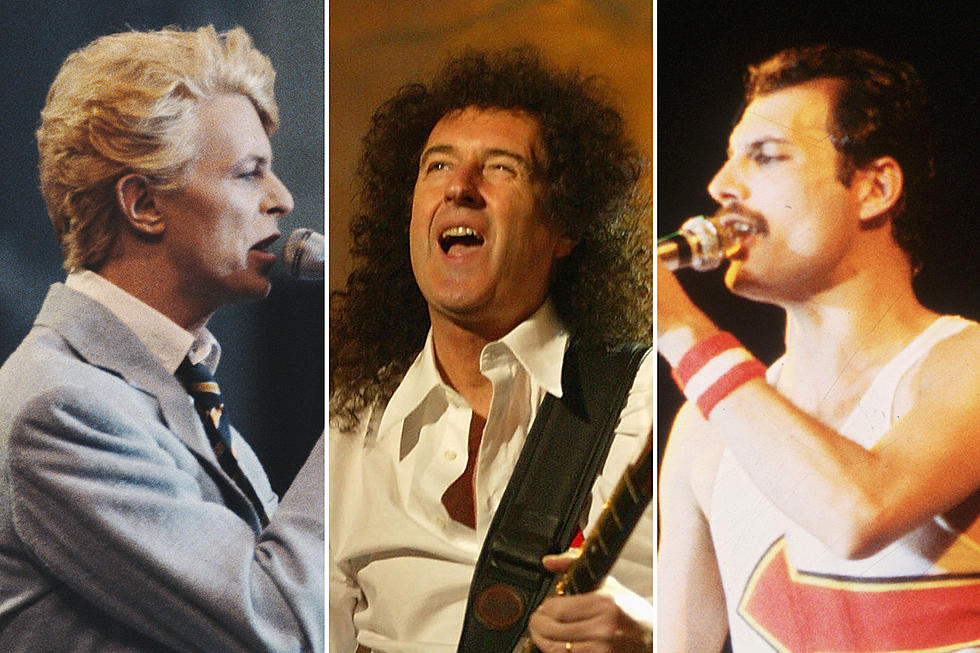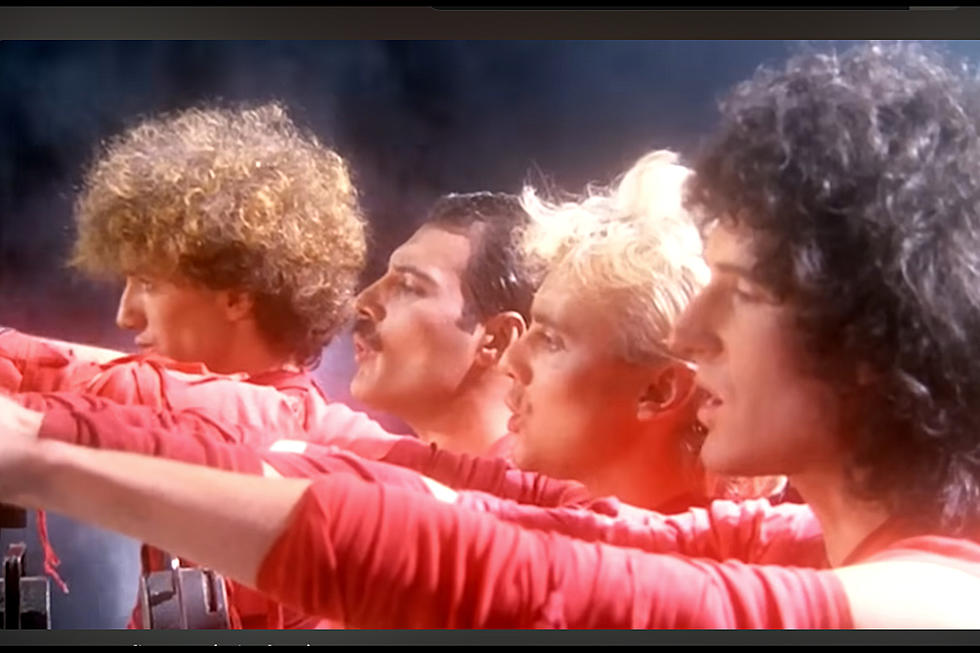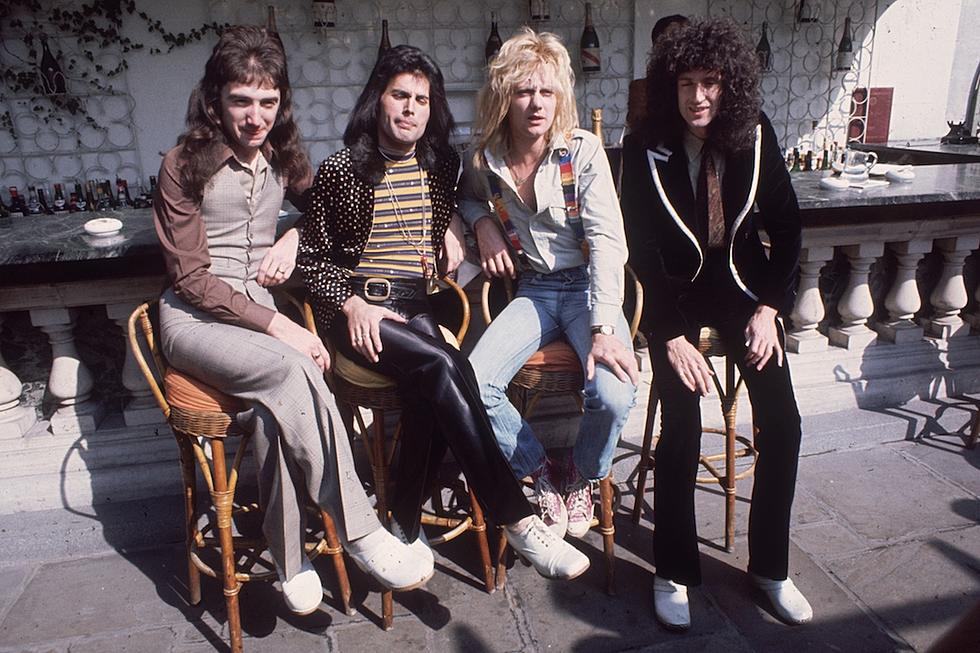The Day Queen Began Recording Their Masterpiece, ‘Bohemian Rhapsody’
If you were to write a history of the recording studio and, specifically, its usefulness as a laboratory for musicians' most ambitious creations, then an entire chapter might well be devoted to "Bohemian Rhapsody." The members of Queen began recording the song on Aug. 24, 1975, redefining the known limits of popular music in the process.
Suffice to say that, whatever Chuck Berry had in mind when he asked Beethoven to roll over, "Bohemian Rhapsody"'s jaw-dropping pastiche of rock and opera sure wasn't it. But then, Queen's flamboyant and unpredictable brand of art rock had been simultaneously stumping and amazing all those who'd heard it well before "Bohemian Rhapsody" came along. It continually morphed over the first three albums of the group's career, until 1974's Sheer Heart Attack started connecting all the dots.
During the first months of 1975, Queen toured the U.S. as headliners for the first time (alternately supported by Styx and Kansas), making their first trip to Japan (where they received a Beatlemania-type reception), and, in singer Freddie Mercury's case, receiving the prestigious Ivor Novello Award for his work on "Killer Queen."
All of these accomplishments no doubt boosted the band's confidence (and courage) as they started working on new material, both in unison and individually, for the album they would soon name A Night at the Opera. This was to be produced by their engineer Roy Thomas Baker, and it's safe to say neither band nor producer could have guessed what Mercury had up his sleeve as he started cobbling together both new ideas and spare song parts he'd been lugging around for years in the privacy of his Kensington apartment.
According to Baker, in an interview with Sound on Sound, his first inkling of what was in store only came when he visited Queen's singer at his home, and Mercury first played him "Bohemian Rhapsody"'s initial ballad section, concluding it by casually quipping, "And this is where the opera section comes in!" Mercury, Taylor and the other members of Queen -- guitarist Brian May, bassist John Deacon and drummer Roger Taylor -- then entered the studio following three weeks of rehearsal to help bring Freddie's madcap magnum opus to life.
Together, the foursome and their studio hands spent as much time arranging, re-arranging, adding, subtracting, and adding some more to "Bohemian Rhapsody"'s bulk as most bands of the time spent on entire albums. In the end, Mercury's central ballad wound up preceded by one of Queen's patented, multi-tracked a capella choirs and was followed by a tasteful solo from May, a minute-long opera section, then a heavy metal instrumental passage and finally a reprise of the core melody, fading gently back into wherever it came from.
All these years later, it's the song's operatic climax that remains its most stunning, almost superhuman, accomplishment, as it required them to clock as 10-to-12 hour days over a three-week period. They reportedly needed nearly 200 vocal overdubs in order to flesh out an entire choir. And then, when they were finally done, their label EMI was, to put it mildly, quite unimpressed.
Although, to be fair, the suits' reasons were typically business-oriented, as "Bohemian Rhapsody's" edged close to the six-minute mark, well beyond the limit favored by commercial radio. Instead, the label suggested they release Deacon's excellent "You're My Best Friend" as first single from A Night at the Opera, but Queen wouldn't hear of it, and it only took a moment for the immediate support of DJs across Britain to prove EMI wrong.
Released in the U.K. on Oct. 31, 1975, "Bohemian Rhapsody" would be No. 1 by Christmas and then hold the spot for nine weeks. Its commercial fortunes were undoubtedly helped by the pioneering music video shot by Queen to stand in for them on Top of the Pops while they were already back on tour by the time they were invited to appear. Meanwhile, their single was also on its way to No. 1 in Canada, New Zealand, the Netherlands and Belgium, earning Top 10 honors in multiple other countries and peaking at No. 9 in America, where it eventually became a million-seller.
"Bohemian Rhapsody" stands as one of the best-selling songs in rock history, prone to repeat visits to global charts anytime it is revived for a movie, commercial or other event, and frankly unique as nothing since has come close to matching its sheer heights of excess, bravura, and, oh yeah, inspiration.
Queen Albums Ranked Worst to Best
You Think You Know Queen?
More From Ultimate Classic Rock









